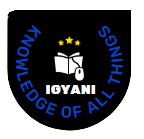In the dynamic world of artificial intelligence (AI), open-source frameworks have become the driving force behind innovation. Developers and data scientists alike rely on these tools to create cutting-edge AI applications. In this article, we’ll explore the top 6 open-source AI frameworks that can elevate your AI projects to new heights. From deep learning to natural language processing, these frameworks offer versatility and performance, making them essential in your AI toolbox.

Table of Contents
The Top 6 Open-Source AI Frameworks
TensorFlow: The King of Deep Learning
TensorFlow is a household name in the AI community. Developed by Google, this versatile framework empowers developers to create deep learning models with ease. With its extensive library of pre-built models and its incredible community support, TensorFlow is a go-to choice for AI projects of all sizes.
PyTorch: Empowering the Research Community
PyTorch has garnered immense popularity, especially among the research community. Developed by Facebook’s AI research group, it provides an intuitive interface for building and training neural networks. PyTorch’s dynamic computation graph and strong support for GPU acceleration make it a robust choice for AI research.
Keras: A User-Friendly Option
Keras is often used in conjunction with TensorFlow or Theano. It simplifies the process of creating neural networks, making it an excellent choice for those new to AI. Its user-friendly API allows for rapid experimentation and prototyping, making it an indispensable framework for many.
YOU MAY ALSO LIKE THIS: Advantages and Disadvantages Of Artificial Intelligence [AI]
scikit-learn: Machine Learning Made Easy
If you’re more interested in traditional machine learning rather than deep learning, scikit-learn is the ideal choice. It’s a user-friendly and efficient library that simplifies machine learning tasks. With a rich set of tools for classification, regression, clustering, and more, it’s the perfect choice for beginners and experts alike.
Theano: A Pioneering Framework
Though no longer actively maintained, Theano remains significant in the history of AI frameworks. It was one of the first frameworks to support deep learning and paved the way for others like TensorFlow. While its usage has waned, it’s worth acknowledging its pioneering role in the field.
MXNet: Scalable and Efficient
MXNet, developed by Apache, stands out for its scalability and efficiency. It supports deep learning and allows developers to build models that can easily scale from small prototypes to production-ready solutions. With strong support for multiple programming languages, MXNet is a valuable addition to the AI landscape.
YOU MAY ALSO LIKE THIS: The Advantages and Disadvantages of Cyber Security
FAQ About open-source frameworks
Q: Which open-source AI framework is best for beginners?
A: Keras is an excellent choice for beginners due to its user-friendly interface and rapid prototyping capabilities.
Q: Can I use scikit-learn for deep learning tasks?
A: No, scikit-learn is primarily designed for traditional machine learning tasks, not deep learning.
Q: Is TensorFlow better than PyTorch for deep learning?
A: It depends on your specific needs. TensorFlow is more versatile and has better support for production deployments, while PyTorch is preferred for research and experimentation.
Q: What is the main advantage of MXNet?
A: MXNet is known for its scalability and efficiency, making it a great choice for AI projects that need to scale from small prototypes to production-ready solutions.
Q: Is Theano still actively maintained?
A: No, Theano is no longer actively maintained, but it played a crucial role in the history of AI frameworks.
Q: Can I use more than one AI framework in a single project?
A: Yes, many developers use a combination of frameworks to leverage the strengths of each for different aspects of their projects.
YOU MAY ALSO LIKE THIS: Advantages and Disadvantages of Machine Learning
Conclusion
Choosing the right open-source AI framework is crucial for the success of your AI projects. The top 6 frameworks mentioned in this article, including TensorFlow, PyTorch, Keras, scikit-learn, Theano, and MXNet, offer a wide array of features and capabilities to cater to your specific needs. Whether you are a beginner or an experienced AI developer, these frameworks will undoubtedly boost your productivity and help you achieve your AI goals.
Also Read:

1 Comment
Add a Comment